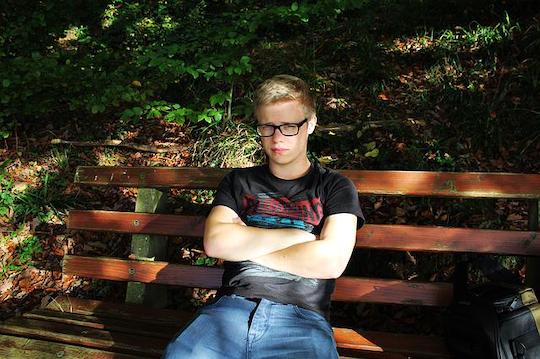When Someone Rejects You, Who Are They Rejecting?
By Dr. Margaret PaulFebruary 08, 2010
Discover the huge difference between being rejected for your wounded self or for your soul self, and begin to learn to manage rejection.
 The fear of rejection is a huge issue in relationships. For some, the fear is so huge that it stops them from being in a relationship. For others, it plagues them throughout their relationships and causes much anxiety.
The fear of rejection is a huge issue in relationships. For some, the fear is so huge that it stops them from being in a relationship. For others, it plagues them throughout their relationships and causes much anxiety.
Rejection is a part of life, and learning to lovingly manage it is very important to our wellbeing.
To help you learn to move beyond the fear of rejection, I would like to help you see who a person is rejecting when they reject you. Are they rejecting your wounded self or your true soul self?
Your wounded self is the self you created when you were growing up to protect yourself from pain. This is the ego - the part of us filled with fear and false beliefs, and many ways of trying to have control over getting love, avoiding pain, and feeling safe. This is the part of us that gives ourselves up, or gets angry, blaming, or critical, or turns to various addictions, or is resistant, or is numbed out or withdrawn.
The wounded self in all of us is not lovable. No one falls in love with our wounded self. No one likes our wounded self.
Your soul self is who you really are - who GOD created rather than who YOU created. This is your true self, your essence. This is the part of all of us that is inherently lovable and loving. This is who someone falls in love with.
When you have been rejected, which part of you is being rejected?
If you have been your wounded self much of the time in a relationship - people-pleasing by giving yourself up, getting angry, judgmental and blaming, withdrawing, turning to various addictions, and/or being highly resistant, then it is very likely that you are being rejected for your wounded self. You are not being rejected for who you really are, but for choosing to be controlling rather than loving. We all need to accept that if we choose to be our wounded self most of the time in a relationship, there is a good possibility that we will be rejected.
However, if you have been your soul self for much of the relationship, then it is very important to not take rejection personally, as it is not about you at all.
In many relationships, two people get together at their common level of woundedness - i.e., they are equally in their wounded self, equally self-abandoning. If, at some point in the relationship, you open to learning and healing, and learn to take responsibility for yourself and be more in your soul self, your partner might be threatened by this. It is very important that if your partner rejects you for your growth, you not take this personally. This is not about anything being wrong with you - it is about your partner not wanting to learn and grow.
On the other hand, if your partner is the one learning and growing, and you choose not to learn and grow, and your partner leaves the relationship, it is not because there is anything inherently wrong with you. There is never anything wrong with our soul self. But if you choose to stay stuck in your wounded self and your partner leaves, it is because he or she is rejecting your wounded self, not your true soul self, and your wounded self is NOT who you really are.
Next time you are rejected, look inside and see who is being rejected - your wounded self or your soul self? If someone rejects you for your wounded self, then take it as an opportunity to learn and heal. If someone rejects you for your soul self, then good riddance! This person would never have supported you in being all that you are.
Heal your relationship with Dr. Margaret’s 30-Day online video relationship course: Wildly, Deeply, Joyously in Love.
 Send this article to a friend
Send this article to a friend  Print this article
Print this article  Bookmarked 18 time(s)
Bookmarked 18 time(s)
| Related Articles |
|---|
| Fear of Rejection |
| Does the Fear of Rejection Control Your Life? |
Comments
| Author | Comment | Date |
|---|---|---|
| Join the Inner Bonding Community to add your comment to articles and see the comments of others... | ||

Daily Inspiration
What path are you really on? Do you stay open as long as things are going your way but retreat to anger or withdrawal as soon as you are displeased with someone or something? Or, do you stay open even in the face of conflict and challenges? Today, be honest with yourself regarding which path you are truly devoted to: The Path of Fear or The Path of Love and Courage.
By Dr. Margaret Paul

 Share with Del.icio.us
Share with Del.icio.us Share with Digg
Share with Digg






